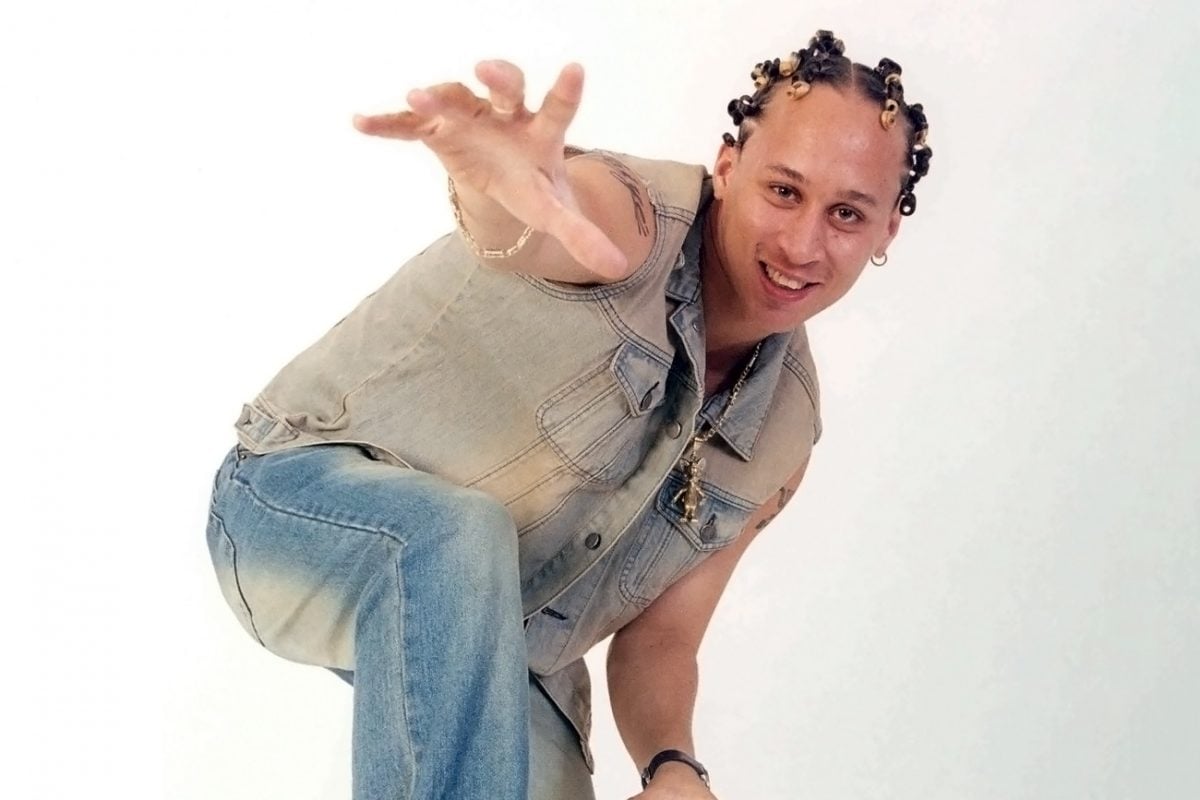Red Rat Says Veteran Producers Shouldn’t Have Stopped Releasing Juggling Riddims

Dancehall artist Red Rat has contended that some veteran producers should shoulder some of the responsibility for the decline in the number of the genre’s juggling riddims.
During a recent interview with DJ Kash, the Shelly Ann artist and the host discussed the issue of juggling riddims, which have all but disappeared from Dancehall, as artists steer away towards solo beats.
“In some sense I used to say that I blame our generation that didn’t train the yutes or bring them een and seh dis is what need to be done. Because Like right now the Drop Top riddim that I produced – me an Pascally – I reached out to some a di young artiste dem and seh: ‘yow I think this riddim woulda fit you’, and dem tell mi seh dem don’t do jugglin. I don’t think them understand the power of what jugglin did,” Red Rat, who is also a music producer said.
“Basically they are doing the same thing but everybody is doing it separately, because all a di riddim dem sound di same way. Is the same vibe; is the same sound. But because it’s not promoted on one compilation, where a DJ keep the vibe and the music going, it just not working,” he said.
When asked whether he thought juggling will ever take its once-dominant space as a feature of Dancehall, Red Rat said that he believes it will, but argued that the music producers who were adept at producing juggling riddims, should have never stopped churning out the compilations, especially since disc jockeys were still requesting them.
“It should. I mean, I blame the producers that used to do it. Why dem stop? A Shams and a Dave Kelly and Tony Kelly. Why did you all stop? You shouldn’t stop because something new started. It should continue; I still do it,” Red Rat pointed out.
The former Main Street artist said that juggling riddims helped artists to dig deep and to use up their creativity, and the artists and producers would cooperate to ensure that no two songs on a riddim sounded alike.
“It show you the creativity of the artistes dem too. Because if I go to a producer and I hear seh five man voice already, I want to hear what dem voice on di riddim. Now, yuh caan hear dat, a man nuh want nobaddy hear him song,” he said.
“But then, when you hear it, you then put yourself in a perspective seh: ‘alright, I’m going to have to find something totally different than what these people are doing. Suh if Spragga a do a gyal song and Bounty a do a bad man song, I gwine know seh I can’t do a gyal song or a bad man song. I have to think of what would I want to hear when I’m in the dance while dis riddim playin…,” he continued.
Added Red Rat: “You have to think about the selector and what him goin seh before him play your song. Is like whole heap a tings you have to think about in that creative process. At least, that is what I do.”
Juggling riddims in Jamaica, began in the early 1980s with the Sleng Teng riddim. Following the reception to Wayne Smith’s Under Mi Sleng Teng, producer King Jammy had set the pattern for juggling riddims, recording a slew of artists on the beat, before other producers could make knock-off versions of the riddim, as was the trend then.
Juggling riddims have been responsible for a slew of crossover hits including Beenie Man’s Who am I (Simma) and Girl dem Sugar, Tanto Metro and Devonte’s Everyone falls in Love Sometime; Like Glue and Gimme Di Light by Sean Paul and No Letting Go by Wayne Wonder.
Over the last several years, concerns have been raised by producers and selectors, about the various ‘camps’ being formed by artistes, who as a result, refused to voice on the same productions as persons they saw their camp’s musical rivals.
Among the most outstanding juggling riddims over the last 30 years were several from Dave Kelly’s Madhouse productions among them Pepper Seed in 1994; Joy Ride and Buy Out also in 1996, Showtime in 1997 and Bruck Out in 1999. Don Carleon’s legendary Drop Leaf was also a massive hit in 2005.
The last huge riddim, which attracted a massive number of artists and had a slew of hits, was Overproof. That beat was created by producers Justus Arison and the late Patrick ‘Roach’ Samuels of JA Productions. Overproof had featured songs from 25 artists, including Mavado with Settle Down, Konshens with Bad Gyal, Khago’s Tun Up Di Ting, and Tifa with Dash Out.
In 2020, a galaxy of the hottest Dancehall stars including Vybz Kartel, Mavado, Dexta Daps, Elephant Man, Konshens, Shenseea, Jahmiel and IOctane, had songs among the 19 which featured on Montego Bay music producer Zum’s Liquid Sunshine juggling riddim.
It had relative success with the top song being Dexta Daps’ Call Me If. However, most of the songs were not radio-friendly as they contained sexually explicit material and expletives, which may have hampered its success.
The riddim broke down barriers as it was the first time since 2015 that Vybz Kartel and Mavado were featured on the same production, the last being Chimney Records’ After Party riddim, which also featured Dancehall top guns including Sean Paul, Alkaline, Tarrus Riley, Popcaan, Beenie Man and Agent Sasco and others.
